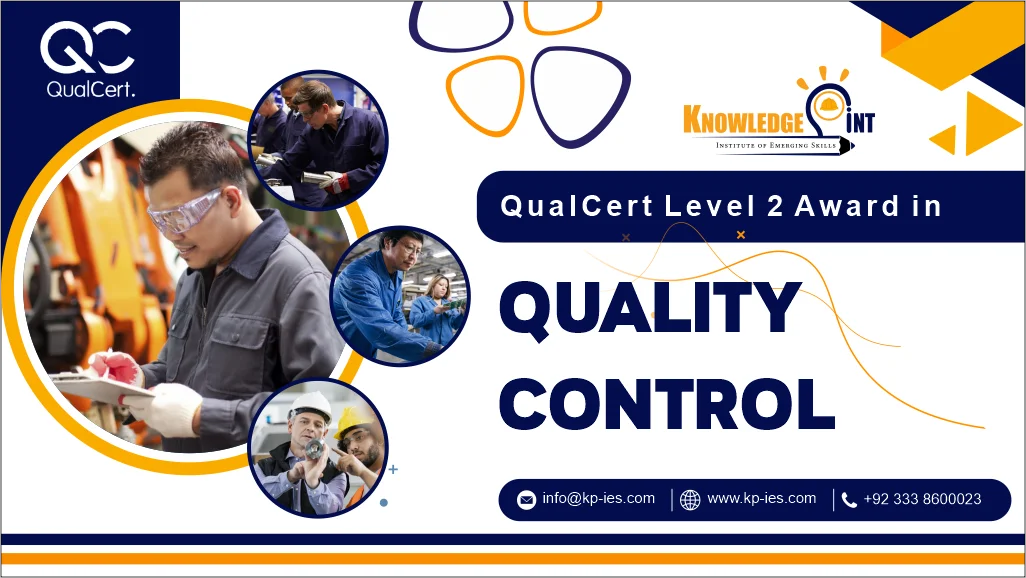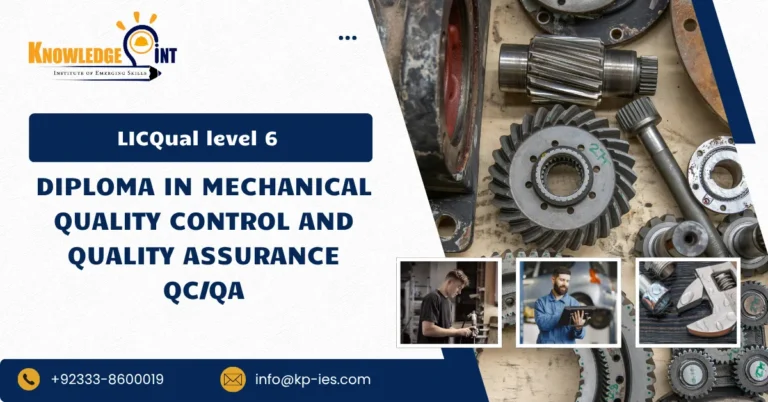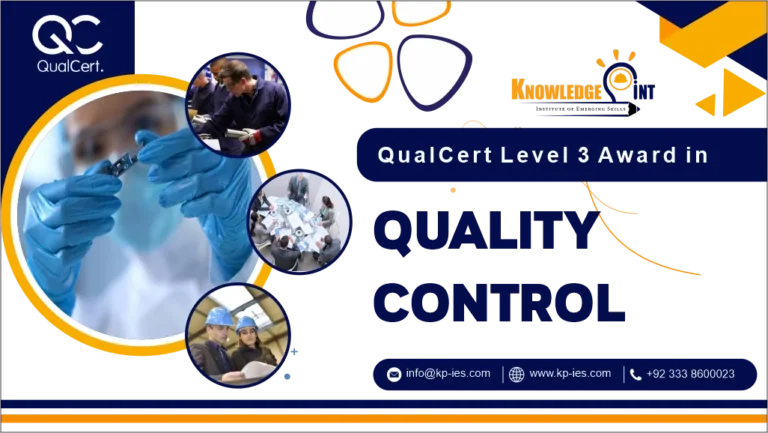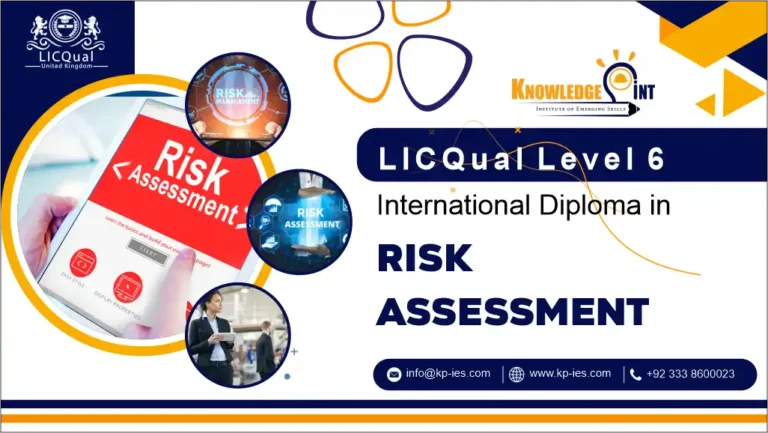In the intricate world of industries, where precision and excellence are non-negotiable, the Level 2 Award in Quality Control emerges as a beacon for those seeking to master the art of ensuring consistent and high-quality outputs. This award is not just a certification; it’s a strategic step toward becoming a seasoned professional in the field of quality management. Let’s embark on the journey of exploring the significance and key elements of the Level 2 Award in Quality Control.
Quality control is the linchpin of success in any industry. The Level 2 Award in Quality Control stands as a testament to an individual’s commitment to excellence, offering a more in-depth exploration of quality management principles and practices. This award is designed to equip participants with advanced skills and knowledge, enabling them to navigate the complex landscape of maintaining and improving quality standards.
The Level 2 Award in Quality Control is not just an award; it’s a testament to a commitment to excellence and a dedication to mastering the intricacies of quality management. As industries evolve, the demand for professionals with advanced skills in quality control becomes increasingly pronounced. Embrace the Level 2 Award, unlock doors to a world of possibilities, and elevate your role as a quality control expert. The journey toward mastering precision and ensuring excellence in every aspect of your industry begins here.
Course Overview
Upon successful completion of the Level 2 Award in Quality Control, participants will demonstrate advanced proficiency in key concepts and practical skills related to quality control. The learning outcomes include:
- Mastery of Advanced Quality Control Tools and Techniques:
- Demonstrate advanced proficiency in the application of a diverse range of quality control tools and techniques for effective monitoring, assessment, and optimization of processes.
- Advanced Statistical Analysis and Data-Driven Decision-Making:
- Apply advanced statistical analysis concepts to interpret complex data sets, making informed and data-driven decisions to enhance the quality control process.
- In-Depth Understanding of Regulatory Compliance and Industry Standards:
- Acquire an in-depth understanding of regulatory compliance and industry-specific standards, ensuring adherence to legal and regulatory requirements within the relevant sector.
- Leadership Skills within Quality Control Teams:
- Develop leadership skills within quality control teams, taking on higher-level responsibilities for strategic planning, team management, and organizational excellence.
- Advanced Problem-Solving Strategies:
- Cultivate advanced problem-solving strategies to address complex quality-related challenges systematically, contributing to continuous improvement initiatives and effective issue resolution.
- Integration of Quality Control with Business Strategy:
- Understand and articulate the integration of quality control practices with overall business strategy, aligning quality objectives with organizational goals for maximum impact and value.
- Application of Industry-Specific Expertise:
- Tailor and apply knowledge to specific industries, becoming an industry-specific expert capable of addressing unique challenges and requirements within the relevant sector.
- Effective Communication of Quality Control Strategies:
- Communicate quality control strategies effectively to various stakeholders, ensuring a shared understanding of objectives, processes, and outcomes.
- Strategic Decision-Making in Quality Management:
- Demonstrate advanced decision-making skills in quality management, considering strategic implications and long-term organizational goals.
- Collaborative Leadership in Quality Improvement Initiatives:
- Lead collaborative efforts within quality control teams to drive continuous improvement initiatives, fostering a culture of excellence and innovation.
- Effective Implementation of Quality Control Best Practices:
- Effectively implement and advocate for best practices in quality control, ensuring the highest standards of products or services.
- Critical Evaluation of Quality Control Processes:
- Critically evaluate existing quality control processes, identifying areas for enhancement and implementing improvements for increased efficiency and effectiveness.
- Advanced Documentation and Record-Keeping Skills:
- Demonstrate advanced skills in meticulous documentation and record-keeping, ensuring traceability, accountability, and compliance with stringent quality standards.
- Comprehensive Understanding of Organizational Impact:
- Understand the comprehensive impact of quality control practices on organizational success, considering both immediate and long-term consequences.
- Preparation for Leadership Roles in Quality Management:
- Prepare for leadership roles within quality control teams or departments, demonstrating the skills and knowledge required for guiding teams toward operational excellence.
By achieving these learning outcomes, participants will be equipped with the advanced knowledge and practical skills necessary to contribute significantly to quality control processes, take on leadership roles, and drive continuous improvement within their respective industries. The Level 2 Award in Quality Control serves as a mark of excellence and expertise in the field of quality management.
Course Benefits of the Level 2 Award in Quality Control (QC):
- Expertise in Advanced Quality Control Practices:
- Acquire advanced proficiency in applying a diverse range of quality control tools and techniques, positioning yourself as an expert in monitoring, assessing, and optimizing processes.
- Data-Driven Decision-Making Skills:
- Develop advanced statistical analysis skills, enabling informed and data-driven decision-making for continuous improvement in quality control processes.
- In-Depth Understanding of Regulatory Compliance:
- Gain a comprehensive understanding of regulatory compliance and industry-specific standards, ensuring adherence to legal and regulatory requirements within your sector.
- Leadership Skills within Quality Control Teams:
- Develop leadership skills to effectively guide and manage quality control teams, contributing to strategic planning and fostering organizational excellence.
- Advanced Problem-Solving Strategies:
- Cultivate advanced problem-solving strategies, empowering you to address complex quality-related challenges systematically and contribute to continuous improvement initiatives.
- Integration of Quality Control with Business Strategy:
- Understand the integration of quality control practices with overall business strategy, aligning quality objectives with organizational goals for maximum impact.
- Industry-Specific Expertise and Application:
- Tailor your knowledge to specific industries, becoming an industry-specific expert capable of addressing unique challenges and requirements within your sector.
- Effective Communication of Quality Control Strategies:
- Enhance communication skills to effectively convey quality control strategies to various stakeholders, ensuring a shared understanding of objectives and processes.
- Strategic Decision-Making in Quality Management:
- Demonstrate advanced decision-making skills in quality management, considering strategic implications and contributing to long-term organizational goals.
- Collaborative Leadership in Quality Improvement Initiatives:
- Lead collaborative efforts within quality control teams to drive continuous improvement initiatives, fostering a culture of excellence and innovation.
- Implementation of Best Practices in Quality Control:
- Advocate for and implement best practices in quality control, ensuring the highest standards of products or services within your organization.
- Advanced Documentation and Record-Keeping Skills:
- Demonstrate advanced skills in meticulous documentation and record-keeping, ensuring traceability, accountability, and compliance with stringent quality standards.
- Comprehensive Understanding of Organizational Impact:
- Understand the comprehensive impact of quality control practices on organizational success, considering both immediate and long-term consequences.
- Preparation for Leadership Roles in Quality Management:
- Prepare for leadership roles within quality control teams or departments, equipped with the skills and knowledge required for guiding teams toward operational excellence.
- Recognition as an Expert in Quality Control:
- Gain recognition as an expert in quality control, enhancing professional credibility and opening doors to advanced career opportunities within your field.
The Level 2 Award in Quality Control offers a multitude of benefits, empowering participants with advanced knowledge and practical skills that go beyond standard quality control practices. Whether you are aiming for leadership roles, industry-specific expertise, or continuous professional development, this award provides a robust platform for achieving excellence in quality management.
Course Contents of Level 2 Award in Quality Control (QC)
The course covers a range of topics relevant to quality control, including:
Module 1: Quality Control Principles and Concepts
- Understanding Quality Control in Context
- Quality Control vs. Quality Assurance
- Key Quality Control Concepts
Module 2: Quality Control Tools and Techniques
- Statistical Process Control (SPC) and Control Charts
- Root Cause Analysis (RCA)
- Failure Mode and Effects Analysis (FMEA)
- Data Collection and Analysis
Module 3: Quality Standards and Regulations
- Industry-Specific Quality Standards (e.g., ISO 9001, AS9100)
- Regulatory Compliance and Quality
- Quality Auditing and Compliance Management
Module 4: Quality Inspection and Testing
- Inspection and Testing Methodologies
- Sampling Plans and AQL (Acceptable Quality Level)
- Precision Measurement and Equipment Use
Module 5: Quality Documentation and Reporting
- Record Keeping and Documentation Requirements
- Effective Reporting of Quality Control Findings
- Auditing and Quality Control Reporting
Module 6: Advanced Problem Solving
- Root Cause Analysis Techniques
- Advanced Statistical Analysis for Problem Solving
- Process Improvement Strategies
Module 7: Quality Assurance and Continuous Improvement
- Quality Assurance Principles
- Continuous Improvement Methodologies (e.g., Six Sigma, Lean)
- Building a Culture of Quality and Improvement
Module 8: Safety and Quality Integration
- The Interplay between Safety and Quality
- Ensuring Safe Quality Control Practices
- Risk Assessment and Safety in Quality Control
Future Progression for Level 2 Award in Quality Control Graduates:
- Level 3 Certification in Quality Management:
- Progress to a Level 3 certification or advanced diploma in quality management to deepen your understanding and expertise in quality control practices.
- Certified Six Sigma Black Belt:
- Pursue certification as a Six Sigma Black Belt, specializing in advanced statistical methods and process improvement strategies for enhanced quality control.
- ISO Lead Auditor Certification:
- Obtain ISO Lead Auditor certification to specialize in auditing quality management systems, ensuring compliance with international quality standards.
- Master’s in Quality Management or Business Administration:
- Advance your education by pursuing a master’s degree, such as a Master’s in Quality Management or an MBA with a focus on quality and process improvement.
- Certified Manager of Quality/Organizational Excellence (CMQ/OE):
- Attain the Certified Manager of Quality/Organizational Excellence (CMQ/OE) certification from the American Society for Quality (ASQ) to demonstrate mastery in quality management principles.
- Industry-Specific Specialization:
- Specialize further within your industry, becoming a recognized expert in quality control with a focus on industry-specific challenges and standards.
- Quality Control Leadership Positions:
- Progress into leadership positions within quality control departments or organizations, taking on higher-level responsibilities for strategic planning and organizational excellence.
- Ph.D. or Doctorate in Quality Management:
- Explore opportunities for pursuing a Ph.D. or doctorate in quality management, engaging in research and contributing to the advancement of knowledge in the field.
- Advanced Data Analytics and Machine Learning Courses:
- Enroll in advanced data analytics and machine learning courses to leverage data-driven insights for continuous improvement and predictive quality control.
- Project Management Professional (PMP) Certification:
- Acquire PMP certification to complement quality control skills with project management expertise, enabling efficient management of quality-related projects.
- Continuous Professional Development (CPD):
- Engage in continuous professional development through workshops, seminars, and conferences to stay updated on emerging trends, technologies, and best practices in quality control.
- Entrepreneurship in Quality Management:
- Explore entrepreneurial opportunities by establishing a quality management consultancy or offering specialized quality control services to businesses.
- International Quality Control Standards:
- Explore certifications or training programs aligned with international quality standards, such as ISO 14001 (environmental management) or ISO 45001 (occupational health and safety).
- Quality Control Research and Publications:
- Contribute to the field by engaging in research projects related to quality control and publishing articles or papers in industry journals or conferences.
- Industry Leadership Associations:
- Become an active member of quality control and management associations, participating in leadership roles, mentoring, and contributing to the advancement of the profession.
- Advanced Roles in Regulatory Compliance:
- Explore roles in regulatory compliance management, ensuring organizations adhere to evolving industry standards and legal requirements.
By strategically pursuing these future progression avenues, graduates of the Level 2 Award in Quality Control can continuously elevate their expertise, contribute significantly to their organizations, and shape the future of quality management in diverse industries. The advanced skills acquired through this award provide a solid foundation for taking on leadership roles and influencing the strategic direction of quality control practices within an organization.







